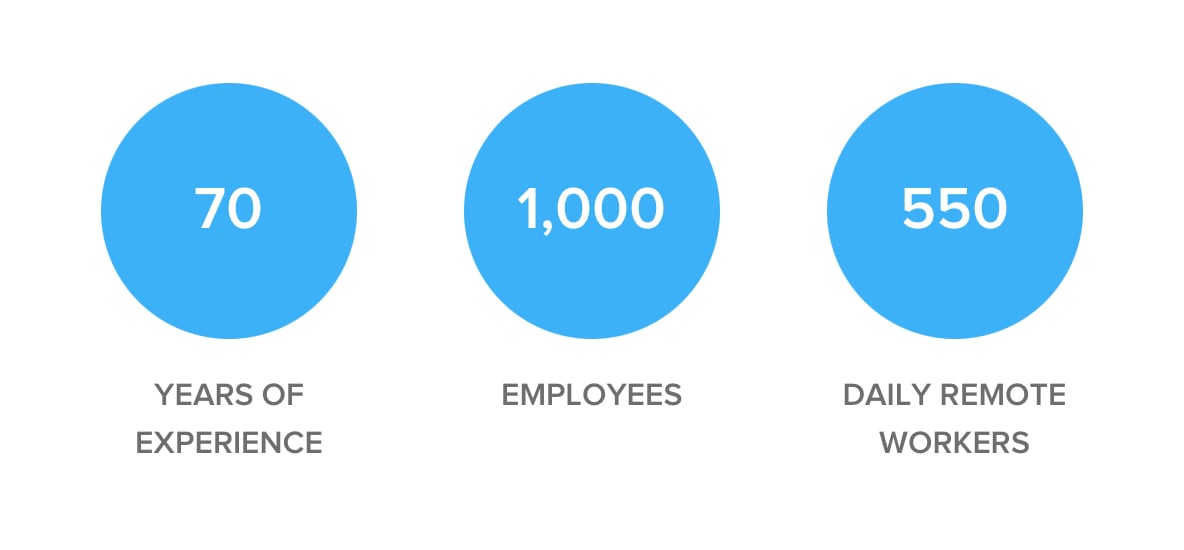

BUSINESS CHALLENGES
The continuous evolution of technology in their industry was making it difficult for DCC to keep up with all the changes and security updates required to ensure a secure, current environment. A complex IT landscape and increasingly sophisticated security threats led DCC to the decision that delegating the management of this to a third-party expert would allow them to focus on their core business. As remote work became a reality of daily life, this became an even more important business decision.
DCC knew that moving to the cloud was the way to overcome these challenges and chose Compugen to partner with because of their extensive experience and expertise.
DCC’s IT Director, Navpreet Uppal summed up the challenges driving this massive undertaking. “DCC needed a reliable partner on this cloud migration journey to get up to speed with the industry and our client partners, as well as mitigate the risks of network downtime and cyber threats. This would prove to be the biggest infrastructure change in the organization’s history,” Uppal explained.
SOLUTION
The team opted for a hybrid solution where most of the applications would move to Azure, while the main ERP would remain on IBM proprietary hardware in a private cloud. Because the ERP was large and contained critical functions such as payroll, adapting it to a public cloud would have been a much greater endeavour than was practicable. Therefore, DCC’s underlying IBM AS/400 system was moved to a private cloud system at the ThinkOn Datacentre. Non-critical applications, databases, services, and networking were transitioned off premises to an Azure cloud. Both public and private clouds were linked via a Microsoft Express Route connection. Compugen enlisted the services of Commvault, ThinkOn, Security Resource Group (SRG), and Fortinet as partners during the migration to fortify security once moved. Throughout this process, Microsoft Professional Services was engaged to evaluate the designs.
Using the Cloud Migration Decision framework, Compugen strategically aligned each application within each service definition provided by DCC to one of the three Rs of cloud migration: Rehost (IaaS), Rebuild (PaaS) or Replace (SaaS). Having identified DCC’s migration goals, the team pinpointed the requirements and constraints, evaluated potential courses of action, and proceeded with the move.
OUTCOMES
The DCC cloud migration project was kicked off in the fall of 2018, with a series of planning and design workshops, leading to a final architecture and implementation in the following spring.
By moving the services to Microsoft’s Azure Secure Cloud and Compugen’s managed services, DCC has achieved these primary objectives:
-
Achieve a secure, adaptable infrastructure hosted and managed by a third-party cloud provider, with elastic and scalable computing resources with complete, real-time and historical visibility of utilization
-
Reduce total cost of ownership (TCO) of computing services
-
Speed up deployment of new technologies, upgrades and patches
Engaging Compugen to manage its IT requirements has allowed DCC to realize the following benefits:
-
A robust cybersecurity model built on best practices able to mitigate current and future threats, with redundancies built in for disaster recovery
-
Allow DCC IT staff to lead technology projects that support the business
-
Managed, updated, audited, and monitored compute and storage resources
-
Rapid provisioning of unfamiliar environments
As a result, DCC emerged better able to adjust to the demands of today’s hybrid world. Under their legacy system, a maximum of 100 people could connect remotely to the VPN, a requirement to work offsite. The new architecture allows over 500 people to establish a remote connection – a fivefold increase over the previous capacity. Upgrading the firewalls to adjust to the new capacity was done remotely, overnight, with no latency or any other connectivity issues reported by DCC staff.
CONCLUSION
This cloud-based data migration project, in partnership with Compugen, has made DCC more agile, leaner, more secure, and better suited to adapt to the changing conditions of the modern workspace. The new solution has also fortified their security across the board, with enhanced protocols and firewall capabilities supporting a secure environment built for remote work.





.png)